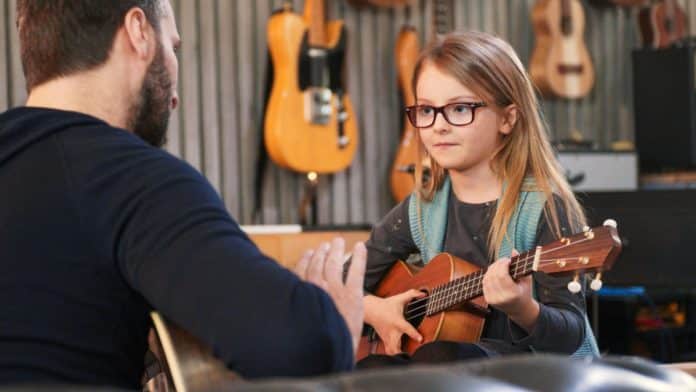
Music can brighten one’s life. It’s a nourishment that, when learned and listened to on a daily basis, can aid individuals in overcoming difficulties and troubles.
Do you want to introduce music to your child? Allow them to learn musical instruments at a young age if this is the case. It not only helps provide mental and physical strength, but it’s also a fantastic hobby that they can pursue further.
If your child expresses an interest in learning an instrument, you can assist them in selecting an instrument that they’ll enjoy and is suited to their character and interests. In relation to that, here are seven top tips for helping your child in selecting a musical instrument to learn:
Introduce Them To The Various Types Of Musical Instruments
If you want your child to find an instrument that interests them, it’s a good idea to show them all of the options. A clear knowledge of musical instruments will also help their intellectual capacity. Among the major types of instruments are string, keyboard, percussion, brass, and woodwind instruments. You may visit melbournemusiccentre.com.au and other similar sites for a great selection of musical instruments that your child might be interested in.
Consider Your Child’s Individual Personality
Since no two children are the same, it stands to reason that no two would approach learning an instrument in the same manner. When it comes to selecting instruments that your child will practice with, their distinctive personality should be considered.
Children who are typically active and high-spirited, for example, may enjoy playing a percussion instrument more than a string instrument. Those who like silence and meditation, on the other hand, may opt to play the acoustic guitar or the piano.
Ask If They Have A Musical Role Model
Is your child a fan of any renowned musician? Children who like and respect a given individual are more likely to desire to be more like that role model. For example, they might do whatever it takes to be like their favorite musician by learning how to play the instrument that their idol plays.
Do your research and discover some artists and musicians with whom your child may have a personal or professional connection. Then, have your youngster learn more about such personalities and view videos of them. If your child gets into trouble or gets frustrated with practicing, they can look to their musical role model for inspiration.
Consider The Available Musical Classes, Lessons, And Groups
Before your child begins playing an instrument, ensure that you can identify an instructor that can teach your child. Also, think about what bands, ensembles, or other musical groups are at your kid’s school or neighborhood. Also, if your child wishes to join a youth orchestra, check what instruments are available and if there are popular instruments or performers in that group.
Discuss Long-Term Instrument-Related Activities
Learning how to play a musical instrument frequently opens up new doors. For example, if your child decides to play the cello, she’ll have the opportunity to join an orchestra, participate in a musical ensemble, or even perform at wedding ceremonies. If your child decides to learn to play drums, they may wish to join a rock band in the future.
Whichever musical instrument they pick up, discuss the associated long-term activities to see if they really want to continue learning that instrument.
Consider Your Child’s Age And Developmental Stage
With aging comes increasing physical ability and height. These factors should be addressed while choosing an instrument for your youngster. While it’s preferable to practice playing an instrument at a young age, some musical instruments are better suited to your kid once they’ve developed the requisite strength to hold the musical instrument in place.
Consider Your Child’s Health And Physical Strength
Does your youngster have any respiratory issues? A woodwind or brass instrument may not be the best choice. Is your youngster wearing braces or still losing teeth? This would also make it difficult for them to handle brass instruments. Also, are your child’s hands large or small? Having tiny hands would make it more difficult to reach the notes of a large musical instrument. Lastly, does your child have good posture and a strong core? When playing drums or other instruments that require sitting, they may develop back, shoulder, and neck problems if they don’t.
Ultimately, considering your child’s physical fitness and health can benefit you in assisting your child in selecting a musical instrument.
Final Thoughts
Choosing the right musical instrument for your child is important. So, keep the advice offered above in mind. However, while you may assist your children in selecting their first musical instrument, their dedication and willingness to practice is just as vital, so always push them to practice. Learning to play a musical instrument should, at the end of the day, fulfil them rather than stress them out.









